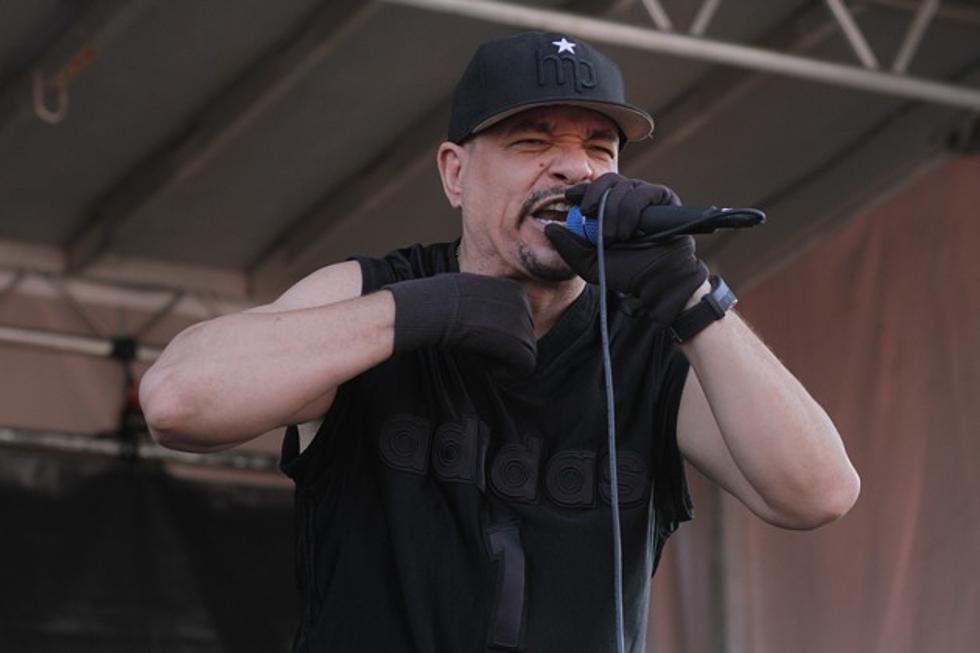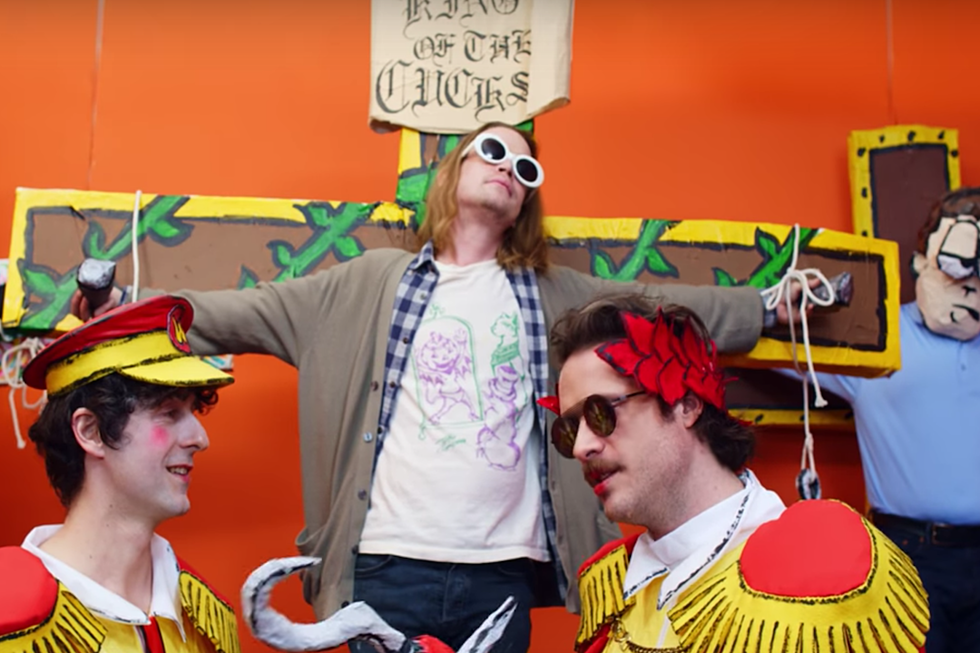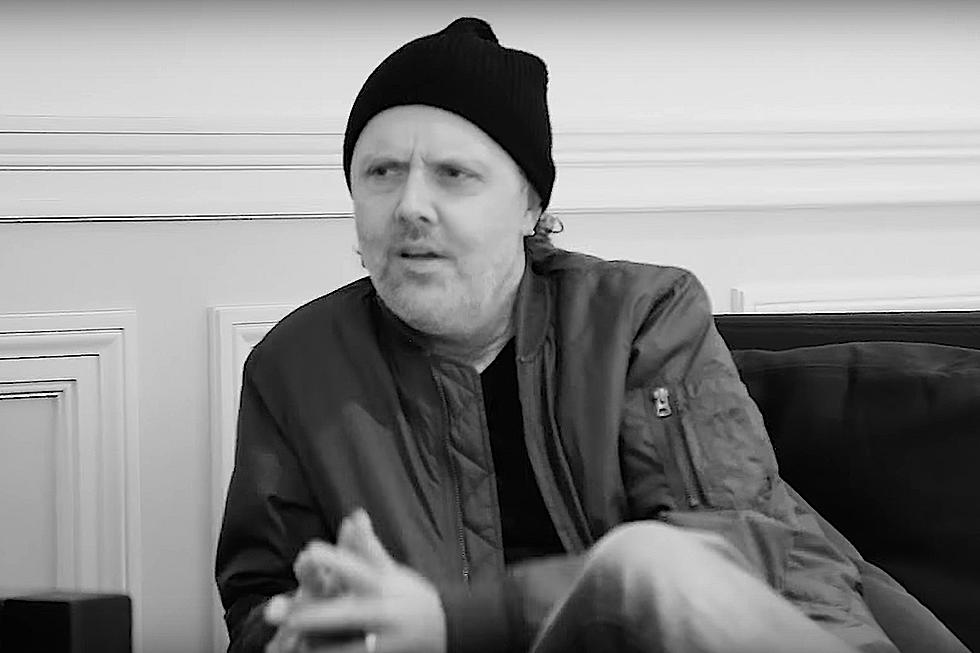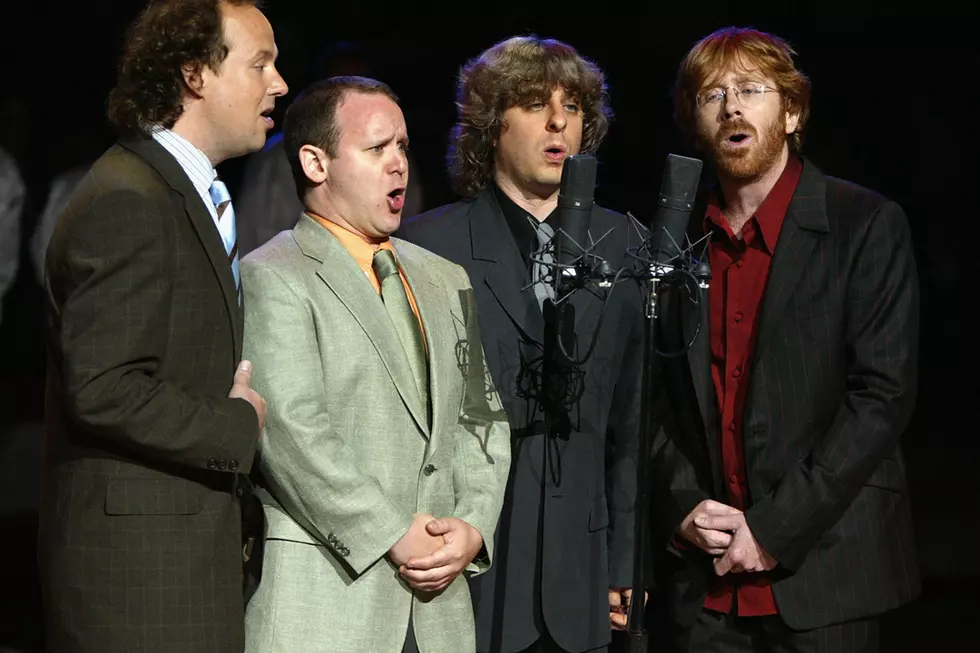
How Paul McCartney Tapped Into a Storied Past With ‘Tug of War’
Paul McCartney worked on his third solo album, Tug of War, for most of 1981.
It was a somewhat trying time for him: Wings, the hit-making band he put together a few years after the Beatles broke up, just called it quits themselves. More significantly, the album's sessions started in October 1980 but were put on hold after the murder of his former bandmate John Lennon two months later.
So McCartney's will to carry on following these two life-shaking events could have resulted in another tossed-off experimental oddity like his previous solo work, 1980's McCartney II, or a worn rehash of what he accomplished with Wings for most of the '70s. Instead, Tug of War turned out to be his best album since 1973's Band on the Run, the one undisputed masterpiece of his post-Beatles career.
It helped that he was working with producer George Martin for the first time since the Beatles' swan song, Abbey Road. Martin knew McCartney better than he knew himself in the studio. McCartney produced (or co-produced, in a couple rare cases) all of his previous solo records and Wings albums, and the finished material often steered all over the place in search of a direction.
Martin was a pro who knew what made McCartney sound good. That included ace musicians to back the star, including jazz bassist Stanley Clarke, Stevie Wonder (who sang Tug of War's No. 1 hit, "Ebony and Ivory," with McCartney, and played various instruments), former Wings bandmate Denny Laine and, for two songs, old Beatles pal Ringo Starr.
McCartney's last album with a band, Wings' 1979 finale Back to the Egg, was messy and unfocused. When he emerged a year later with his second solo record, he was entirely on his own, producing and playing every instrument himself. Tug of War was supposed to be – and, indeed, turned out to be – a rebirth of sorts for McCartney, who lost his way creatively over the previous few years.
Watch Paul McCartney Perform 'Take It Away'
Even though Lennon's death was a turbulent blow, when he and Martin regrouped in February 1981 to resume sessions, the mood was light, professional and prolific. For the next several months they hopped continents and studios (mostly recording in the Caribbean and London), picking up guest musicians, along the way.
Two songs were recorded with Wonder, "Ebony and Ivory" and the way funkier "What's That You're Doing"; Starr played drums on another pair, "Take It Away," the album's second single, and "Wanderlust"; and old friends like Laine, Beatles inspiration Carl Perkins and wife Linda showed up throughout.
From the opening title track (a mournful meditation that could be interpreted as commentary on McCartney's splintered relationship with Lennon) to "Ebony and Ivory" (his eighth No. 1 as a solo artist), Tug of War played like an equal balance of his career: good songs, sappy songs, commercially targeted songs and some adventurous songs.
It all paid off with another No. 1 album, his first since 1976's Wings at the Speed of Sound and last until 2018's Egypt Station hurtled McCartney back to the top. The sessions were so productive that several of its leftover songs (which didn't become B-sides) ended up on his next record, the following year's Pipes of Peace.
Tug of War marked the moment where McCartney was at his most Beatlesque since the group's breakup more than a decade earlier – from Martin's shimmering production and Starr's participation to the mix of pop, rock and R&B and the reflective nature of some of the songs. ("Here Today" is a moving eulogy for Lennon.)
It looked like Paul McCartney was back on track for the relatively new decade, though that turned out to not be the case at all. Instead, the '80s and '90s were spotted with misfires and clunky attempts at relevancy. Tug of War was his last partial shot at greatness until 2005's lush and gutsy Chaos and Creation in the Backyard reminded everyone what made him so essential in the first place.
Weird Facts About Rock's Most Famous Album Covers
You Think You Know the Beatles?
More From Classic Rock Q107










